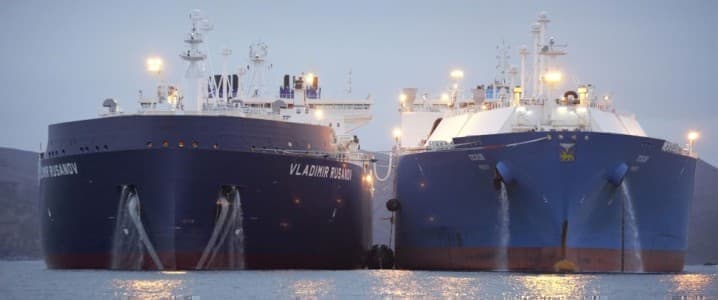The European oil and gas majors, which are also the world’s top LNG traders, reported a mixed bag of third-quarter results, with some beating or meeting estimates and others missing expectations amid diverging gas trading opportunities in Europe and Asia.
Shell and TotalEnergies, the world’s largest and second-largest LNG traders, respectively, reported strong gas trading earnings thanks to the open arbitrage to Asian markets in the third quarter. But BP, another major with a typically strong gas trading business, saw weak results in the division between July and September, which dragged overall earnings below analyst estimates.
The difference between BP, on one hand, and Shell and TotalEnergies, on the other hand, was that BP is more exposed to the European and U.S. markets where inventories were high while volatility was not.
Shell reported last week adjusted earnings of $6.224 billion for the third quarter, generally in line with expectations. The higher adjusted earnings and EBITDA for the third quarter compared to the second quarter reflected favorable trading and optimization results combined with higher realized liquids prices, offset by lower volumes. Shell had already said a month ago that it expects its third-quarter earnings to receive a boost from stronger trading results in its natural gas and products divisions compared to the second quarter.
“Shell delivered another quarter of strong operational and financial performance, capturing opportunities in volatile commodity markets,” Shell’s CEO Wael Sawan said in a statement. Related: U.S. Rig Count Takes A Dive
TotalEnergies, for its part, reported a third-quarter net income above expectations, thanks to higher oil prices, strong trading, and stronger refining margins in the summer.
“The Asian buyers are back in the LNG business: today, the JKM is at TTF plus $2 to $3, which means that they are ready to buy. And today, most of the cargoes are going to Asia because the spot market is in favor of Asia,” TotalEnergies chief executive Patrick Pouyanné said on the earnings call, commenting on the natural gas prices in Europe and Asia and their differentials.
“So you might have in this type of market, more call for LNG coming from Asia, so it puts an additional tension on this LNG market.”
While Shell and TotalEnergies benefited from the open arbitrage to the Asian market, BP said that its gas trading performance was weak in the third quarter.
BP reported lower-than-forecast earnings for the third quarter as weak gas marketing and trading and a charge in offshore wind weighed on the results and couldn’t offset a strong oil trading business.
“If you think back to the year, in the first quarter we had an exceptional performance, in the second quarter we had exceptional performance, and then in the third quarter – we’re calling it weak. That was really due to lack of structure in the market,” BP’s interim CEO Murray Auchincloss said on the earnings call.
“So there was a little bit of volatility in the prompt, but the actual structure of the market as you looked out across multiple months wasn’t moving around.”
Auchincloss noted that “It’s just a situation where inventories are very full in Europe, inventories are quite full in the United States, and that just means there’s much less money to make on volatility.”
With the bigger exposure to Europe’s gas market, BP’s trading was weaker than the similar divisions at Shell and TotalEnergies, which took full advantage of the return of Asian buyers and the open arbitrage this summer.
Looking forward, BP’s Auchincloss said “volatility will tell” how the gas trading division would perform in the fourth quarter.
“Weather will determine it, outages will determine it, and you know that our business is poised to do well when volatility occurs,” he said.
Bernstein analyst Oswald Clint told Reuters that “BP is more active in LNG trading in the U.S and Europe.”
At the same time, Clint noted, “Shell and TotalEnergies are more exposed to the LNG arbitrage (differences in prices) between the East and West and this was open in the third quarter.”
By Tsvetana Paraskova for Oilprice.com
More Top Reads From Oilprice.com:
- Department Of Energy Delays Launch Of New LNG Export Terminal
- U.S. Administration Sees A Future For Blue Hydrogen
- Will Petrochemicals Continue To Drive Oil Demand?


















